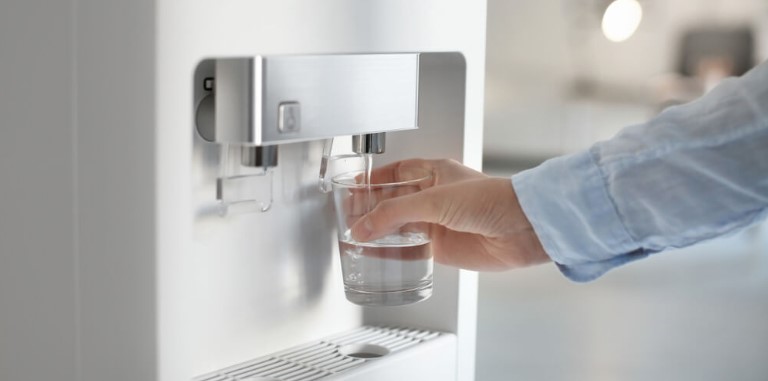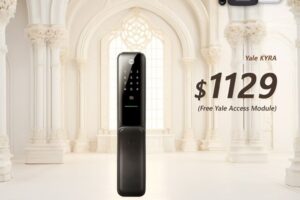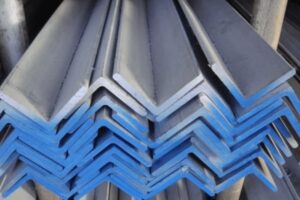
Clean drinking water is a luxury that stands at the very foundation of our well-being. In today’s world, the task of delivering clean and safe drinking water increases in relevance as the pollution of water bodies goes up. Thank God, there are today many solutions for water treatment, and each one has its pros and considerations. In this guide, we take a closer look at three popular choices: water filters, water purifiers, and water dispensers.
Water Filters: For Better Taste and Purer Drinking Water
Whatever the shape and size of the hot cold water filter, one thing is clear: it is the ultimate aim of all water filters to enhance the quality of drinking water that we consume every day. Whether it is a pitcher filter, a faucet-mounted filter, or an under-sink filter, all the filters perform the role of enhancing flavour and removing common impurities from tap water.
Kinds of Water Filters
Pitcher Filters: In use by many homeowners, these are a common type of water filter. A simple water jug is used through which a cartridge filter is fitted for the percolation of water, removing the impurities as water flows through it.
Faucet-mounted Filters: Attach directly to your kitchen faucet. They filter water at the point of use. They are convenient, easily installed, and just right for a large number of renters and homeowners.
Under-sink Filters: These are mounted under a sink, directly connected to the main water supply. They are designed to dispense water through a separate faucet, which is mostly mounted on the sink.
Benefits of Water Filters
Better Taste and Odour: Instantaneously, the use of a hot-cold water filter can enhance the taste and odour. The filtering process eliminates chlorine and other chemicals in tap water that are responsible for the bad taste.
Removes Common Contaminants: Water filters remove common impurities found in the water, such as chlorine, sediment, and some heavy metals, making it clean and safe for drinking.
Cost-effective and Simple Installation/Maintenance: Filters are relatively cheap compared to other options in water treatment and come with easy installations. Most pitcher and faucet-mounted filters are easy to maintain, mainly requiring filter changes.
Considerations for Water Filters
Whereas hot-cold water filter poses their vast advantages, there are a few things to keep in mind:
Variation in Filtration Levels: Not all water filters are created equal. While some can take out plain impurities in the water, some are much more sophisticated in their filtration levels. You may want to consider getting a filter that meets your specific concerns regarding the quality of the water.
Specialized: Many filters are designed to target certain types of contaminants, so if there is a specific concern you have about water quality such as lead or fluoride in your water, be sure to get a filter that will specifically address that concern.
Long-Term Maintenance Needs: Filters are generally low maintenance, although you do have to consider periodic filter cartridge replacement. Consider this when budgeting for your water filter system: its frequency and cost.
Water Purifiers: The Perfect Shield for Healthy Drinking Water
In our efforts to secure clean drinking water, hot cold water purifier emerges as advanced and cutting-edge guardians of our health. It allows water to get treated against the widest range of contaminants to ensure the water we drink is safe and clean.
Water Purification Technologies
Reverse Osmosis: The process of purifying water through a semipermeable membrane is reversed. In most reverse osmosis systems, pressure is used to reduce contaminants, such as bacteria, viruses, dissolved solids, and heavy metals.
Distillation: This is the process of boiling water until it forms steam, which on cooling reverts to liquid water. In this way, most of the impurities are left behind and the water becomes purified without any addition of the contaminants if their boiling points are higher than the water.
Ultraviolet Purification: Ultraviolet purification kills water microorganisms, such as bacteria and viruses, by employing ultraviolet light. It effectively kills dangerous pathogens without causing any change in water taste and smell.
Advantages of Water Purifiers
Absolute Removal of Impurities: Unlike most water filters, the hot-cold water purifier is capable of cleaning out a wide range of impurities which include bacteria, viruses, protozoa, and chemical impurities. This means that drinking water will be free from any unhealthy impurities.
Ensuring Microbial Safety: In most places, especially those where the level of sanitation is not at the required standard, waterborne pathogens are the greatest health risk. Water purifiers provide this added protection against the attack of microbial contamination, lowering the risk of waterborne illnesses.
Health Benefits: By taking out harmful impurities from the drinking water, purifiers can provide relief from waterborne diseases and ensure better health.
Water Purifiers Considerations
Though hot-cold water purifier offers very significant benefits, a few factors should be kept in mind before investing in one:
Initial Cost and Maintenance Requirements: Purifiers are going to be costlier at the point of purchase as compared to basic filter systems. In addition, certain purification processes will necessitate maintenance over time, including periodic changing of filters and system cleaning.
Mineral Content: Some of the purification removes the minerals that are beneficial to human health. Water purification like RO and distillation can also remove beneficial minerals from the water along with impurities. This would not matter for health, but this can be looked at when one wants the water to be mineral-rich.
Suitability for Specific Contaminants: Different methods of water purification are used to treat a specific type of contaminant. Before making a purchase, determine the major impurities present in your water source and use the technology that handles those most efficiently.
Water Dispensers: Efficiency and Keeping Water at Desired Temperature
Water dispensers may filter and purify water, but they also provide convenience and temperature control features. The hot & cold water dispenser can equally be either a countertop model for the home or a bottle-fed model for the office, giving easy access to cold, refreshing water.
Types of Water Dispensers
Countertop Dispensers: These are small, freestanding units that are put on the counter and dispense water from a small built-in reservoir. They are designed with an assurance of space-saving and convenience for getting hot, cold, or room-temperature water.
Bottled Dispensers: These utilize pre-filled bottles of water, usually at the top of the unit. They are mainly used in offices and workspaces as they offer fresh drinking water without the trouble of hustling to get water from any source.
Plumbed-In Dispensers: From the home water supply, plumbed-in dispensers pull their water supplies directly, hence providing an endless supply of purified or filtered water. They need some installation, although after the same, hot & cold water dispenser offers plenty of access to clean water that does not necessitate refilling of bottles.
Benefits of Water Dispensers
Temperature Control: Most water dispensers are endowed with temperature control features. This could either be hot, cold, or room temperature features, according to the model. That’s really convenient for households and offices where everyone prefers something different.
For Offices and Large Families: Water dispensers are the best solution for working offices, workplaces, and large families where getting clean drinking water is needed. They are available in numerous designs and styles, such as the ones that are counter and the ones that are bottle-fed.
Features of Filtration: It integrates the water dispensers with some that hold filtering systems inside them. Therefore, this ensures the water you will dispense is clean and safe to drink without needing additional filtration devices.
Considerations for Water Dispensers
As much as there are a lot of benefits of having hot & cold water dispenser, one needs to check on a few factors before purchasing it:
Bottle Model Sustainability: Bottle-fed models require periodic replacement of the bottles, which may generate plastic waste. Think of the environmental impact in addition to the continuous cost of water bottle purchase and disposal.
Space Requirements for Countertop Models: Countertop dispensers can be a serious consumer of space resources, especially in your kitchen or office. You need to think of the space requirements before purchasing a countertop model, which, in essence, you need enough space to be able to comfortably fit the unit in.
Evaluate Filtration Capabilities: If you are going to get one with an in-built filtering mechanism, then gauge the effectiveness of that mechanism. Opt for the ones that will remove a whole lot of contaminants to guarantee the clean and safe dispensing of water.
Also Check: Dust-Free Living: Exploring Air Purifiers for Dust and Allergen Reduction




